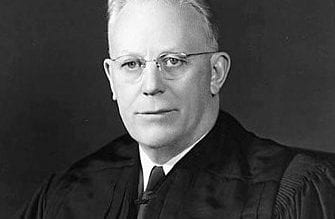MR. CHIEF JUSTICE WARREN delivered the opinion of the Court.
These cases were decided on May 17, 1954. The opinions of that date, declaring the fundamental principle that racial discrimination in public education is unconstitutional, are incorporated herein by reference. All provisions of federal, state, or local law requiring or permitting such discrimination must yield to this principle. There remains for consideration the manner in which relief is to be accorded.
Because these cases arose under different local conditions and their disposition will involve a variety of local problems, we requested further argument on the question of relief. In view of the nationwide importance of the decision, we invited the Attorney General of the United States and the Attorneys General of all states requiring or permitting racial discrimination in public education to present their views on that question. The parties, the United States, and the States of Florida, North Carolina, Arkansas, Oklahoma, Maryland, and Texas filed briefs and participated in the oral argument.
These presentations were informative and helpful to the Court in its consideration of the complexities arising from the transition to a system of public education freed of racial discrimination. The presentations also demonstrated that substantial steps to eliminate racial discrimination in public schools have already been taken, not only in some of the communities in which these cases arose, but in some of the states appearing as amici curiae, and in other states as well. Substantial progress has been made in the District of Columbia and in the communities in Kansas and Delaware involved in this litigation. The defendants in the cases coming to us from South Carolina and Virginia are awaiting the decision of this Court concerning relief.
Full implementation of these constitutional principles may require solution of varied local school problems. School authorities have the primary responsibility for elucidating, assessing, and solving these problems; courts will have to consider whether the action of school authorities constitutes good faith implementation of the governing constitutional principles. Because of their proximity to local conditions and the possible need for further hearings, the courts which originally heard these cases can best perform this judicial appraisal. Accordingly, we believe it appropriate to remand the cases to those courts.
In fashioning and effectuating the decrees, the courts will be guided by equitable principles. Traditionally, equity has been characterized by a practical flexibility in shaping its remedies and by a facility for adjusting and reconciling public and private needs. These cases call for the exercise of these traditional attributes of equity power. At stake is the personal interest of the plaintiffs in admission to public schools as soon as practicable on a nondiscriminatory basis. To effectuate this interest may call for elimination of a variety of obstacles in making the transition to school systems operated in accordance with the constitutional principles set forth in our May 17, 1954, decision. Courts of equity may properly take into account the public interest in the elimination of such obstacles in a systematic and effective manner. But it should go without saying that the vitality of these constitutional principles cannot be allowed to yield simply because of disagreement with them.
While giving weight to these public and private considerations, the courts will require that the defendants make a prompt and reasonable start toward full compliance with our May 17, 1954, ruling. Once such a start has been made, the courts may find that additional time is necessary to carry out the ruling in an effective manner. The burden rests upon the defendants to establish that such time is necessary in the public interest and is consistent with good faith compliance at the earliest practicable date. To that end, the courts may consider problems related to administration, arising from the physical condition of the school plant, the school transportation system, personnel, revision of school districts and attendance areas into compact units to achieve a system of determining admission to the public schools on a nonracial basis, and revision of local laws and regulations which may be necessary in solving the foregoing problems. They will also consider the adequacy of any plans the defendants may propose to meet these problems and to effectuate a transition to a racially nondiscriminatory school system. During this period of transition, the courts will retain jurisdiction of these cases.
The judgments below, except that, in the Delaware case, are accordingly reversed, and the cases are remanded to the District Courts to take such proceedings and enter such orders and decrees consistent with this opinion as are necessary and proper to admit to public schools on a racially nondiscriminatory basis with all deliberate speed the parties to these cases. The judgment in the Delaware case—ordering the immediate admission of the plaintiffs to schools previously attended only by white children—is affirmed on the basis of the principles stated in our May 17, 1954, opinion, but the case is remanded to the Supreme Court of Delaware for such further proceedings as that Court may deem necessary in light of this opinion.
It is so ordered.

































































































































































































































































